1001 Filmmakers You Need to Know
Fred Zinnemann - Director
(April 29, 1907 – March 14, 1997)
Role: Director
Fred Zinnemann was born in Vienna, Austria, into a Jewish family and grew up in an environment rich in art and culture.
Initially, he pursued a career in law before his interest in visual storytelling led him to study film in Paris and later in Berlin.
This early exposure to the European film scene provided him with a foundation in realism, which he would later bring to Hollywood.
When he moved to the U.S., he continued to study and practice filmmaking, developing his unique eye for detail and precision.
His European roots remained an influence in his work, as he became known for crafting humanistic and moral dramas.
Zinnemann was influenced by European filmmakers, particularly German expressionists and documentarians, who prioritized realism and intense character study.
Zinnemann’s Influences:
He brought these techniques into Hollywood, merging European sensibilities with American storytelling.
Directors like F.W. Murnau and Fritz Lang helped shape his preference for meticulous shot composition and atmospheric lighting.
His films often explore complex moral questions, combining his European training with American themes.
These influences helped Zinnemann establish himself as a director who valued character-driven, ethically complex narratives.
Zinnemann’s first feature film, Kid Glove Killer (1942), marked his entry into Hollywood as a director with MGM.
Zinnemann’s First Feature:
A crime thriller made during World War II, the film was modest in scale but showcased his focus on tight, suspenseful storytelling.
The film earned positive reviews, helping Zinnemann build his reputation as a capable director.
Though it wasn’t a blockbuster, Kid Glove Killer gave him the chance to demonstrate his commitment to detailed storytelling.
This debut helped pave the way for more ambitious projects.
Zinnemann’s Breakout:
His mainstream breakout came with High Noon (1952), a Western that defied genre conventions by focusing on themes of courage and moral integrity.
The film’s real-time narrative, set in a small town as a sheriff awaits a confrontation with outlaws, was revolutionary for its time.
High Noon won four Academy Awards, including Best Actor for Gary Cooper, and solidified Zinnemann’s reputation as a director of substance and skill.
The film’s critical and commercial success showcased his ability to tell compelling, morally complex stories within a popular genre.
It remains a classic, exemplifying Zinnemann’s skill in blending entertainment with ethical depth.
Fred Zinnemann was known for his meticulous craftsmanship, thoughtful pacing, and focus on moral and ethical themes.
His work often portrayed protagonists facing difficult moral decisions, reflecting his commitment to exploring the human condition.
Zinnemann’s visual style is precise, with careful attention to framing and lighting that enhances the emotional tone of his films.
He was unafraid to tackle complex social issues, making his films not only engaging but also thought-provoking.
This combination of technical skill and thematic depth makes his body of work both artistically and intellectually significant.
Before his death in 1997, Zinnemann remained an active figure in cinema, continuing to develop projects and mentoring young filmmakers.
His films, known for their depth and precision, continue to inspire directors and are studied in film schools worldwide.
His work, spanning multiple genres, is still appreciated for its humanity and cinematic elegance.
Zinnemann’s legacy lives on, influencing generations of filmmakers dedicated to meaningful storytelling.
His ability to craft films with both moral and emotional resonance ensures his lasting place in cinema history.
Notable Films:
High Noon (1952)
From Here to Eternity (1953)
A Man for All Seasons (1966)
The Day of the Jackal (1973)
The Nun’s Story (1959)
Note: The voices above are AI and trained on excerpts from 1001 Filmmakers You Need to Know and other publically available material.
P.S. Catch up on the rest from TheModernFilmmaker.co:
👉 Buy: The Modern Filmmaker’s On Set Filmmaking Dictionary, today.
👉 Some Filmmakers to Know: Jia Zhangke & Jon Singleton…
👉 Some Filmmaking Terms: Above-the-Line & Back to First Marks…
👉 Some Stories: So there I was… Juggling Too Many Roles…
👉 Some Thoughts: Cover Your Ass & Your Films with this…
👉 Some Resources: For Filmmakers…
The Filmmaking Dictionary You Didn’t Know You Needed
Now that we’re talking about visionaries, let me tell you about something every auteur should have on set—my Modern Filmmaker’s On-Set Filmmaking Dictionary. It's packed with over 1,400 industry terms that will not only help you sound like a pro but also ensure that every phase of production from development to distribution runs smoother than ever to help you on the terms you need to know.
👉 Get your copy here on Amazon Prime. Seriously, it’s a must-have.


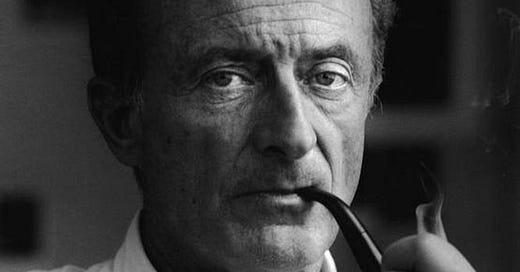
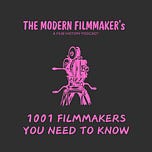
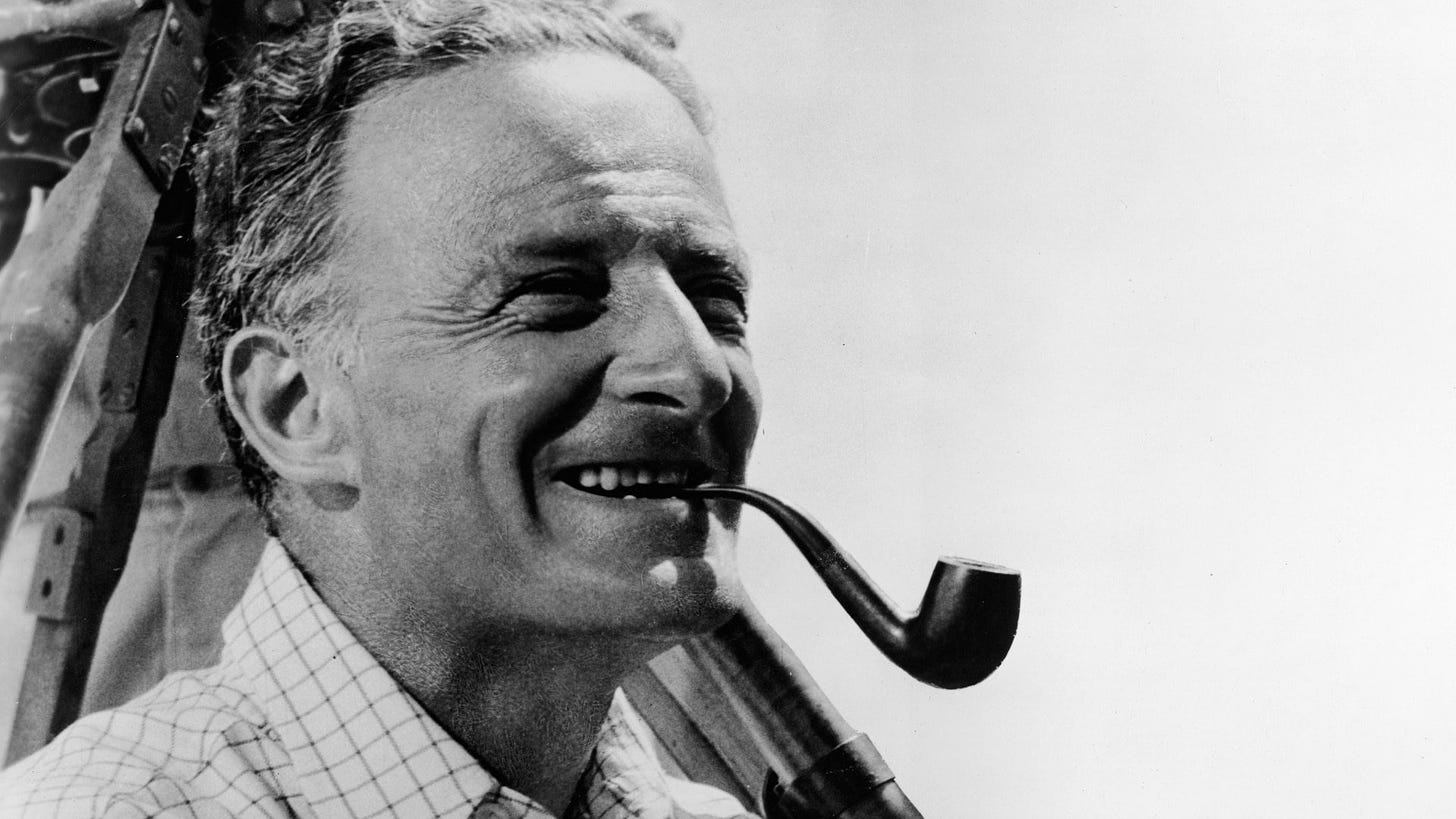

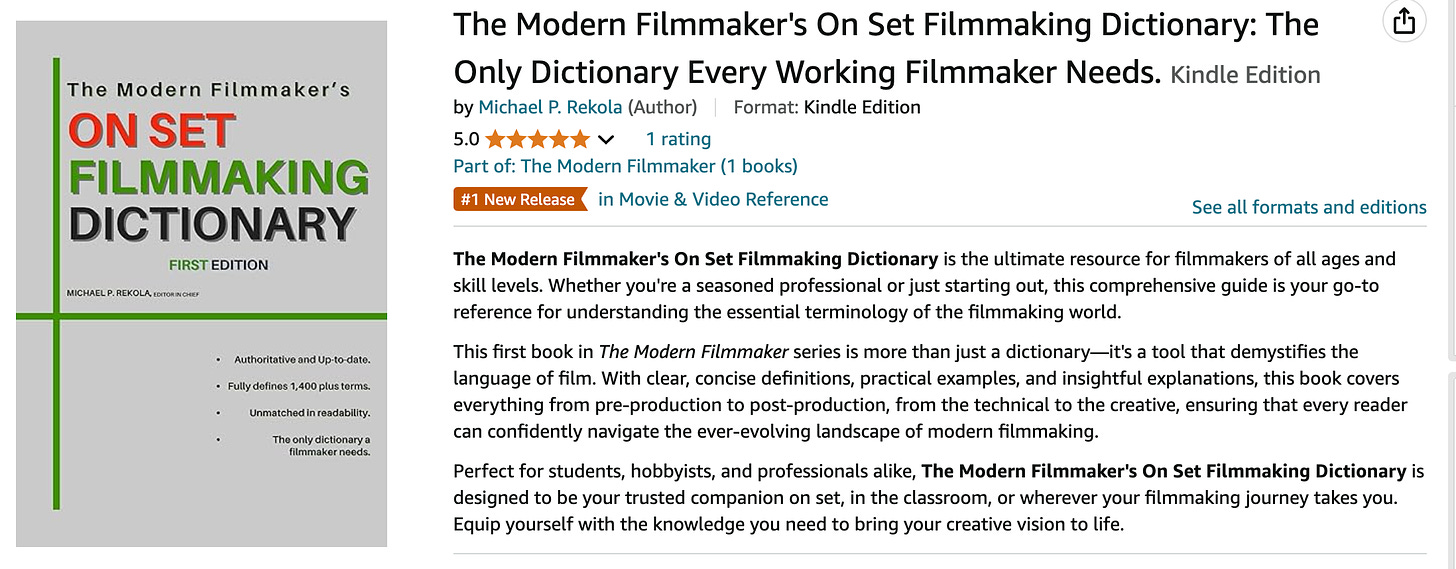


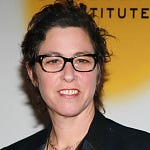
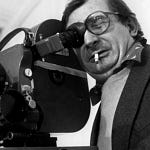
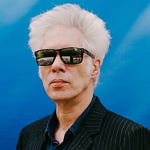
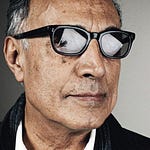


Share this post